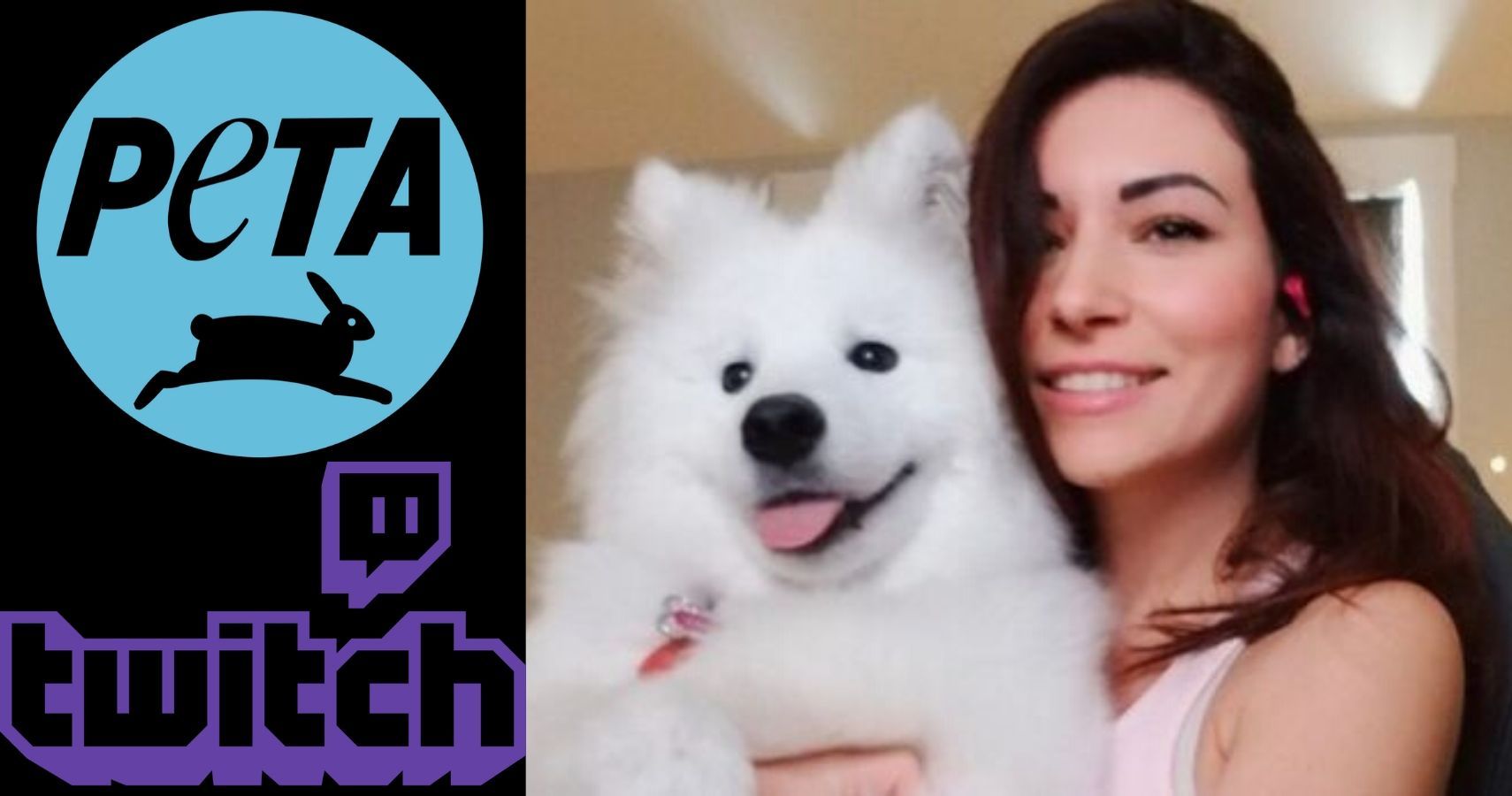PETA, one of the world’s largest animal rights organizations, is demanding popular streamer Natalia “Alinity” Mogollon be banned from Twitch. Peta responded to a tweet which called for them to take action by saying “we are aware of the cruelty and have demanded Twitch take her off the platform.”
Alinity came under fire last week after a clip of her and her dog went viral:
While it does seem ridiculous to bar someone from the platform for a mostly harmless interaction with their dog, Twitch has been known to wield their authority brashly when it comes to instances that could be seen as sexually suggestive—banning streamers for relatively benign missteps with increasingly high frequency.
Almost all banned Twitch stars feel like their removal from the platform is unwarranted, but some have a point.
The whirlwind that followed Alinity’s clip included mostly outrage and rare instances of support. Alinity tweeted out the clip herself, opening a discussion for her followers to decide which side they’re on.
Alinity has a history that includes a laundry list of semi-questionable content, including a clip that shows her letting her cat take a sip of vodka. Some twitter users used this a basis for an argument in support of Alinity’s suspension.
The consensus seems to be that this incident alone isn’t enough for a ban, but the compounding effect of her previous on-stream interactions with her pets are enough to push it over the edge. From knocking her cat off of a cat tree to gently kicking her dog, it’s easy to see why people are up in arms.
PETA has led the charge since the beginning. With each accusation of seeming neglect or abuse that Alinity is wrapped up in, PETA hasn't shied away from letting its opinions be heard. But not everyone sides with the organization. Some claim that PETA really doesn't even care about animals. The activist group has been the target of repeated claims of hypocrisy for its position as the number one source of animal euthanasia in the world. PETA maintains that euthanasia is the most humane way to deal with sick and abused animals. They even have a webpage called "Why We Euthanize." In response, there's a dedicated site to exposing the hypocrisy and cruelty of the organization that claims to stand for animal rights. In any case, their reputation - and conduct - is not as pristine as some might think.
The issue that the Alinity conversation raises is about more than animal cruelty, however. For the most part, Alinity’s transgressions—ill-humored and borderline irresponsible as they maybe—have been relatively mild. The character attacks she’s receiving as a result of her actions, however, are not.
For a case that is supposed to be about animal abuse, a surprising percentage of the discussion carries sexual undertones. Female streamers, in particular, are being targeted and suspended for wearing suggestive clothing or promoting overtly sexual content, and some feel that Alinity has slipped under the radar of that crackdown.
A large percentage of Twitch’s user base consists of minors. So, it makes sense for the platform to be diligent in their assessment of sexually suggestive material. But not everyone agrees on what constitutes as sexually suggestive.
Another distinction is intent. Is the streamer being purposefully sexual or are Twitch viewers sexualizing innocent content? Does it matter? Last month, Exohydrax was banned for wearing "revealing" clothing, even after she was harassed in her chat for doing so. Is Twitch feeding blatant sexism by wantonly dishing out bans? The line between what is and isn’t sexual is a difficult one to draw, but Twitch seems to err on the side of extreme caution—which may do more harm than good.

